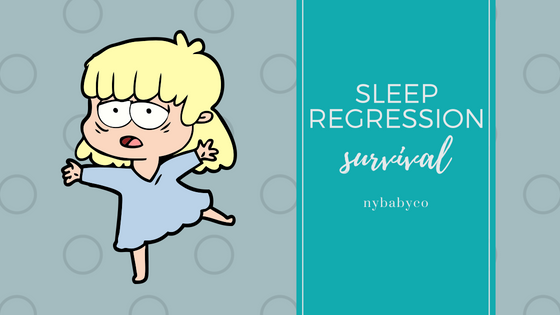|
Just when you thought you got the hang of a solid routine, your baby is suddenly a stranger to sleep. How on earth could this have happened when sleep was going so well? Is baby waking frequently at night? Dropping naps? Fighting sleep? These are all common signs of a sleep regression. Sleep regressions most commonly occur around three to four months, eight to ten months, twelve months, eighteen months, two years and three years. However, babies can have them with milestones and developmental leaps as well. Sleep regressions can last anywhere from two to six weeks, although a longer or shorter timeline is possible. After all, every baby is different. If you are feeling at the end of your rope when it comes to sleep, take comfort in knowing that these sleep regressions are completely normal, even if your friend’s baby is still sleeping a solid ten hours. But in the mean time, what can we do to get through it? Here are five strategies and coping mechanisms to pick and choose from: Know that it is Temporary The good news is that sleep regressions don’t last forever. There will be an end in sight. It isn’t a predictable end, and it may not align with the other babies who are the same age as yours, but understand that these regressions are normal as well as the fussiness, frequent feeding and overwhelming need to be cuddled. Enlist Help There is a reason that sleep deprivation is used as a method of torture. It can be downright debilitating. If you are struggling to keep your head above water, enlisting help is a great idea, whether from a partner, friend, parent or postpartum doula. A meal delivery or cleaning service is another great idea to delegate tasks which may become too overwhelming to stay on top of with lack of sleep. Sleep and self care are important. If you feel your needs are being neglected, try not to power through. Taking care of yourself is a huge priority. Sleep Train Many parents make the decision to sleep train around these times. While this tends to be a hot button “all or nothing” subject, know that there are gray areas. While cry-it-out works for some parents, others may be more apt to try methods that don’t require this process. There are also many sleep training methods that are breastfeeding friendly. If you aren’t sure where to start, a sleep specialist could be a great resource to get you on the road to routine again. There’s an App For That Sometimes, having predictability, even when it is just a predictor of everything being chaotic and unpredictable, can make a world of difference! Since many sleep regressions occur with developmental leaps, knowing when the leap is happening can help to distinguish when this behavior may occur. Many new parents are so exhausted, the thought of reading a book can be daunting. This is why the Wonder Weeks app is a great resource. It predicts when leaps are coming for your baby, can describe signs of the developmental leaps and will even tell you what you can do to help. Even if you don’t have time to read the app, a simple chart with thunderclouds and sunshine icons can’t be a better quick reference so you’ll know what is coming. Trust Your Gut If something is just not seeming right to you, it is always a great measure to visit your baby’s care provider and seek reassurance that there isn’t another issue causing a loss of sleep, such as an ear infection. You know your baby better than anyone, so if you sense something else may be going on, it is always best to err on the side of caution.
1 Comment
|
nybabyco.
Services |
NY Baby Co. |
Support |
518-712-9767 | [email protected]


 RSS Feed
RSS Feed

